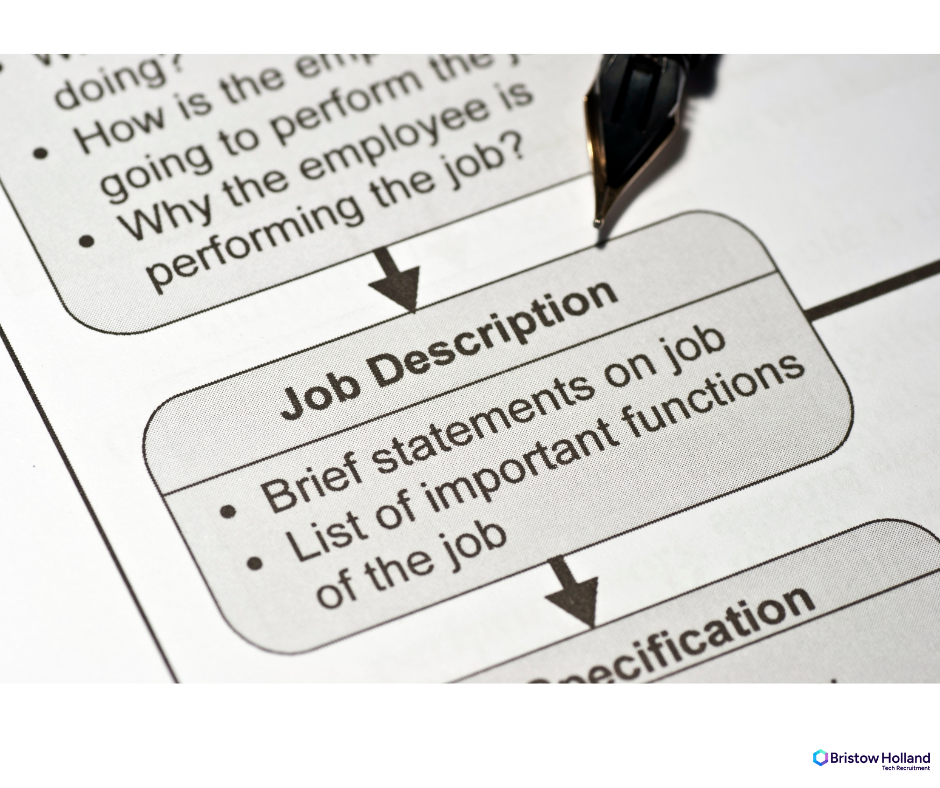Understanding Head of CRM Jobs: Roles, Skills, and Challenges
Explore the roles, skills, and challenges of head of CRM jobs in today's business landscape.
Overview
The role of Head of CRM is pivotal in shaping customer relationship strategies within organisations. Successful CRM leaders are not only expected to possess strong analytical, communication, and strategic thinking skills but must also adeptly navigate challenges such as low user adoption and data quality issues. These challenges underscore the critical role of effective CRM management in driving customer satisfaction and ensuring business success. By mastering these skills and addressing these hurdles, CRM leaders can implement proven strategies that enhance customer engagement and foster loyalty.
Introduction
The role of Head of CRM has evolved into a cornerstone of modern business strategy, where effective customer relationship management is paramount for success. As organisations navigate an increasingly competitive landscape, the responsibilities and skills required for CRM leaders have become multifaceted.
- Data-driven decision-making and technology integration are critical components of this evolution.
- However, organisations often grapple with significant challenges such as:
- Low user adoption rates
- Data quality issues
What proven strategies can CRM leaders employ to navigate these obstacles and drive organisational success?
Define Head of CRM Jobs: Core Responsibilities and Expectations
The head of CRM jobs represents a pivotal senior leadership role, tasked with the crucial duty of crafting and implementing the organisation’s CRM strategy. This position encompasses the supervision of client engagement initiatives, management of client information, and alignment of the CRM system with broader business objectives. Key responsibilities include:
- Leading a team dedicated to fostering personalised client interactions
- Analysing client data to uncover trends
- Optimising CRM systems for enhanced performance
By driving customer retention and loyalty, the Head of CRM plays a significant role in propelling the organisation’s revenue growth.
In 2025, the average salary for a Head of CRM in the UK is approximately £63,421, with a range from £57,499 to £87,499, reflecting variations based on location and organisational size. For instance, positions in London can command salaries as high as £88,642, while jobs in cities like Manchester and Sheffield average around £63,766 and £61,487, respectively. Furthermore, there are currently 345 head of CRM jobs available on CWJobs, indicating a robust demand for this role in the market.
Organisations that effectively implement CRM strategies often experience enhanced relationships with clients and increased sales. Companies that emphasise data-driven decision-making in their CRM practices can customise their marketing efforts to address client needs more precisely, leading to increased engagement rates. Notable examples include businesses leveraging advanced analytics to enhance audience segmentation and personalise communication, resulting in significant improvements in satisfaction and loyalty.
Key expectations for the head of CRM jobs extend beyond strategic oversight; they also include the ability to adapt to evolving market demands and technological advancements. This requires a profound understanding of customer behaviour and the capacity to leverage data analytics to inform decision-making. As businesses increasingly recognise the importance of customer-centric strategies, the role of the head of CRM jobs will remain vital in driving organisational success.
Contextualize the Role: The Evolution of CRM Leadership in Business
In recent years, the role of head of CRM jobs has undergone a significant transformation. Initially centred on information management and sales monitoring, CRM systems have evolved into strategic tools essential for enhancing client relationships. As organisations increasingly recognise the critical role of client engagement in driving success, CRM leaders are now tasked with integrating advanced technologies such as artificial intelligence (AI) and data analytics into their strategies. This evolution not only enhances client experiences but also aligns with the broader trend towards client-focused business models, where anticipating and understanding client needs is paramount.
Statistics indicate that:
- 80% of sales professionals intend to leverage AI to maximise the value of their CRM platforms within the next five years, highlighting the growing dependence on technology in this field.
- Enterprises that incorporate AI into their CRM strategies report a 15% increase in repeat sales and client retention, illustrating the tangible benefits of this integration.
- CRM has improved client satisfaction by 74%, underscoring its effectiveness in strengthening client relationships.
- The global AI in CRM market is projected to expand from $11.04 billion in 2025 to $48.4 billion by 2033, signalling substantial investment in this sector.
Consequently, the head of CRM jobs is increasingly focused on utilising technology to bolster client satisfaction and loyalty, thereby positioning CRM as a vital function in modern business operations.

Identify Key Skills and Characteristics of Successful CRM Leaders
Successful CRM leaders embody a distinctive combination of skills and characteristics that empower them to thrive in their roles. Strong analytical ability stands out as a critical skill, essential for interpreting client information and deriving actionable insights. Proficiency in analytical tools can lead to a 20% increase in client retention, while CRM systems can enhance client retention by up to 27%. This underscores the vital role of data analysis in CRM management.
Equally vital are effective communication skills, enabling leaders to engage stakeholders and foster collaboration across departments. Notably, 86% of clients are willing to pay more for enhanced experiences, emphasising the necessity for clear communication and relationship-building. Furthermore, 64% of sales representatives report improved productivity with CRM, further highlighting the importance of communication in boosting team performance and client interactions.
Strategic thinking is another key attribute, allowing CRM leaders to align initiatives with overarching business goals. As technology and client expectations evolve, adaptability becomes crucial; leaders must be prepared to pivot strategies in response to new trends and challenges. Continuous education through webinars and training is essential for staying updated in the evolving CRM landscape.
Empathy and a customer-centric mindset further enhance a leader’s effectiveness, as these traits facilitate the development of meaningful relationships with customers, ultimately driving loyalty and satisfaction. By mastering these skills, CRM leaders can navigate the complexities of their roles and contribute significantly to their organisations’ success.
Address Challenges: Navigating Common Issues in CRM Management
CRM leaders encounter significant challenges, particularly regarding low user adoption rates of CRM systems, which can severely impact organisational effectiveness. Research indicates that between 30-70% of CRM deployments fail, often due to resistance to change among employees who may feel their existing systems are ‘good enough.’ This reluctance stifles innovation and hinders the exploration of more effective solutions. To combat these issues, successful CRM leaders prioritise comprehensive training and ongoing support, ensuring that team members recognise the value of the CRM system in enhancing their workflows.
Moreover, sustaining high information quality is essential for user trust and system usage. Organisations frequently face quality problems arising from integration challenges and inconsistent information entry practises. Implementing robust data governance practises can help maintain data integrity, while leveraging analytics allows leaders to make informed decisions based on accurate information.
To improve user adoption, CRM leaders should adopt strategies such as:
- Involving users early in the selection process
- Providing tailored training sessions
- Establishing clear objectives for CRM implementation
A phased implementation approach can mitigate challenges and allow for feedback gathering before a wider rollout. By fostering a culture of feedback and continuous improvement, organisations can enhance user engagement and satisfaction, ultimately leading to better customer experiences and increased sales revenue. As Michael Scheiner notes, effective CRM adoption is not merely about technology; it requires a commitment to change management and a focus on user-centric solutions.

Conclusion
The role of the Head of CRM is increasingly recognised as a vital component in driving organisational success through effective client engagement strategies. This position not only encompasses the management of CRM systems but also requires a forward-thinking approach to integrate advanced technologies and data analytics, ensuring that client needs are anticipated and met. As businesses evolve, the Head of CRM must adapt to these changes, reinforcing the importance of this leadership role in achieving sustainable growth.
Key insights from the discussion highlight the multifaceted responsibilities of CRM leaders, including the necessity for strong analytical skills, effective communication, and strategic thinking. The article underscores the significant impact of technology, particularly AI, on CRM practises, as well as the challenges faced, such as low user adoption and data quality issues. By prioritising comprehensive training and fostering a culture of feedback, CRM leaders can enhance system usage and ultimately drive higher client satisfaction and loyalty.
In reflecting on the future of CRM leadership, it becomes clear that the demand for skilled professionals in this area will only grow. Organisations must invest in developing their CRM capabilities to navigate the complexities of modern client relationships. Embracing a customer-centric mindset and leveraging technology will be crucial for success. For those aspiring to excel in CRM leadership, continuous learning and adaptability will be essential in meeting the evolving demands of the market and ensuring that client relationships remain at the forefront of business strategy.
Frequently Asked Questions
What is the role of the Head of CRM?
The Head of CRM is a senior leadership position responsible for crafting and implementing the organisation’s CRM strategy, supervising client engagement initiatives, managing client information, and aligning the CRM system with broader business objectives.
What are the core responsibilities of a Head of CRM?
Key responsibilities include leading a team to foster personalised client interactions, analysing client data to uncover trends, and optimising CRM systems for enhanced performance.
How does the Head of CRM contribute to an organisation’s success?
By driving customer retention and loyalty, the Head of CRM plays a significant role in propelling the organisation’s revenue growth and enhancing relationships with clients.
What is the average salary for a Head of CRM in the UK?
In 2025, the average salary for a Head of CRM in the UK is approximately £63,421, with a range from £57,499 to £87,499, depending on location and organisational size.
How do salaries for Head of CRM positions vary by location?
Positions in London can command salaries as high as £88,642, while jobs in cities like Manchester and Sheffield average around £63,766 and £61,487, respectively.
What is the current job market like for Head of CRM positions?
There are currently 345 Head of CRM jobs available on CWJobs, indicating a robust demand for this role in the market.
How do effective CRM strategies impact organisations?
Organisations that effectively implement CRM strategies often experience enhanced relationships with clients and increased sales, as they can customise marketing efforts to address client needs more precisely.
What are the key expectations for the Head of CRM role?
Key expectations include strategic oversight, the ability to adapt to evolving market demands and technological advancements, a profound understanding of customer behaviour, and the capacity to leverage data analytics for informed decision-making.
{“@context”: “https://schema.org”, “@type”: “FAQPage”, “mainEntity”: [{“@type”: “Question”, “name”: “What is the role of the Head of CRM?”, “acceptedAnswer”: {“@type”: “Answer”, “text”: “The Head of CRM is a senior leadership position responsible for crafting and implementing the organisation’s CRM strategy, supervising client engagement initiatives, managing client information, and aligning the CRM system with broader business objectives.”}}, {“@type”: “Question”, “name”: “What are the core responsibilities of a Head of CRM?”, “acceptedAnswer”: {“@type”: “Answer”, “text”: “Key responsibilities include leading a team to foster personalised client interactions, analysing client data to uncover trends, and optimising CRM systems for enhanced performance.”}}, {“@type”: “Question”, “name”: “How does the Head of CRM contribute to an organisation’s success?”, “acceptedAnswer”: {“@type”: “Answer”, “text”: “By driving customer retention and loyalty, the Head of CRM plays a significant role in propelling the organisation’s revenue growth and enhancing relationships with clients.”}}, {“@type”: “Question”, “name”: “What is the average salary for a Head of CRM in the UK?”, “acceptedAnswer”: {“@type”: “Answer”, “text”: “In 2025, the average salary for a Head of CRM in the UK is approximately \u00a363,421, with a range from \u00a357,499 to \u00a387,499, depending on location and organisational size.”}}, {“@type”: “Question”, “name”: “How do salaries for Head of CRM positions vary by location?”, “acceptedAnswer”: {“@type”: “Answer”, “text”: “Positions in London can command salaries as high as \u00a388,642, while jobs in cities like Manchester and Sheffield average around \u00a363,766 and \u00a361,487, respectively.”}}, {“@type”: “Question”, “name”: “What is the current job market like for Head of CRM positions?”, “acceptedAnswer”: {“@type”: “Answer”, “text”: “There are currently 345 Head of CRM jobs available on CWJobs, indicating a robust demand for this role in the market.”}}, {“@type”: “Question”, “name”: “How do effective CRM strategies impact organisations?”, “acceptedAnswer”: {“@type”: “Answer”, “text”: “Organisations that effectively implement CRM strategies often experience enhanced relationships with clients and increased sales, as they can customise marketing efforts to address client needs more precisely.”}}, {“@type”: “Question”, “name”: “What are the key expectations for the Head of CRM role?”, “acceptedAnswer”: {“@type”: “Answer”, “text”: “Key expectations include strategic oversight, the ability to adapt to evolving market demands and technological advancements, a profound understanding of customer behaviour, and the capacity to leverage data analytics for informed decision-making.”}}]}{“@context”: “https://schema.org”, “@type”: “BlogPosting”, “headline”: “Understanding Head of CRM Jobs: Roles, Skills, and Challenges”, “description”: “Explore the roles, skills, and challenges of head of CRM jobs in today’s business landscape.”, “datePublished”: “2025-08-02T00:09:33.911000”, “image”: [“https://images.tely.ai/telyai/innovative-crm-leadership-in-a-modern-office-bgmxjutm.webp”, “https://images.tely.ai/telyai/crm-training-session-in-a-corporate-environment-eseltimt.webp”], “articleBody”: “## Overview\nThe role of Head of CRM is pivotal in shaping customer relationship strategies within organisations. Successful CRM leaders are not only expected to possess strong analytical, communication, and strategic thinking skills but must also adeptly navigate challenges such as low user adoption and data quality issues. These challenges underscore the critical role of effective CRM management in driving customer satisfaction and ensuring business success. By mastering these skills and addressing these hurdles, CRM leaders can implement proven strategies that enhance customer engagement and foster loyalty.\n\n## Introduction\nThe role of Head of CRM has evolved into a cornerstone of modern business strategy, where effective customer relationship management is paramount for success. As organisations navigate an increasingly competitive landscape, the responsibilities and skills required for CRM leaders have become multifaceted. \n\n- Data-driven decision-making and technology integration are critical components of this evolution. \n- However, organisations often grapple with significant challenges such as:\n – Low user adoption rates \n – Data quality issues \n\nWhat proven strategies can CRM leaders employ to navigate these obstacles and drive organisational success?\n\n## Define Head of CRM Jobs: Core Responsibilities and Expectations\nThe head of CRM jobs represents a pivotal senior leadership role, tasked with the crucial duty of crafting and implementing the organisation’s CRM strategy. This position encompasses the supervision of client engagement initiatives, management of client information, and alignment of the CRM system with broader business objectives. Key responsibilities include:\n\n1. Leading a team dedicated to fostering personalised client interactions\n2. Analysing client data to uncover trends\n3. Optimising CRM systems for enhanced performance\n\nBy driving customer retention and loyalty, the Head of CRM plays a significant role in propelling the organisation’s revenue growth.\n\nIn 2025, the [average salary for a Head of CRM in the UK](https://uk.indeed.com/career/head-of-crm/salaries) is approximately \u00a363,421, with a range from \u00a357,499 to \u00a387,499, reflecting variations based on location and organisational size. For instance, positions in London can command salaries as high as \u00a388,642, while jobs in cities like Manchester and Sheffield average around \u00a363,766 and \u00a361,487, respectively. Furthermore, there are currently 345 head of CRM jobs available on CWJobs, indicating a robust demand for this role in the market.\n\nOrganisations that effectively implement CRM strategies often experience enhanced relationships with clients and increased sales. Companies that emphasise data-driven decision-making in their CRM practices can customise their marketing efforts to address client needs more precisely, leading to increased engagement rates. Notable examples include businesses leveraging advanced analytics to enhance audience segmentation and personalise communication, resulting in significant improvements in satisfaction and loyalty.\n\nKey expectations for the head of CRM jobs extend beyond strategic oversight; they also include the ability to adapt to evolving market demands and technological advancements. This requires a profound understanding of customer behaviour and the capacity to leverage data analytics to inform decision-making. As businesses increasingly recognise the importance of customer-centric strategies, the role of the head of CRM jobs will remain vital in driving organisational success.\n## Contextualize the Role: The Evolution of CRM Leadership in Business\nIn recent years, the role of head of CRM jobs has undergone a significant transformation. Initially centred on information management and sales monitoring, CRM systems have evolved into strategic tools essential for enhancing client relationships. As organisations increasingly recognise the critical role of client engagement in driving success, CRM leaders are now tasked with integrating advanced technologies such as artificial intelligence (AI) and data analytics into their strategies. This evolution not only enhances client experiences but also aligns with the broader trend towards [client-focused business models](https://onlinebusinessstartup.co.uk/blog/understanding-crm-statistics-key-insights-for-business-growth), where anticipating and understanding client needs is paramount.\n\nStatistics indicate that:\n\n1. 80% of sales professionals intend to leverage AI to maximise the value of their CRM platforms within the next five years, highlighting the growing dependence on technology in this field.\n2. Enterprises that incorporate AI into their CRM strategies report a 15% increase in repeat sales and client retention, illustrating the tangible benefits of this integration.\n3. CRM has improved client satisfaction by 74%, underscoring its effectiveness in strengthening client relationships.\n4. The global AI in CRM market is projected to expand from $11.04 billion in 2025 to $48.4 billion by 2033, signalling substantial investment in this sector.\n\nConsequently, the head of CRM jobs is increasingly focused on utilising technology to bolster client satisfaction and loyalty, thereby positioning CRM as a vital function in modern business operations.\n\n\n## Identify Key Skills and Characteristics of Successful CRM Leaders\nSuccessful CRM leaders embody a distinctive combination of skills and characteristics that empower them to thrive in their roles. Strong analytical ability stands out as a critical skill, essential for interpreting client information and deriving actionable insights. Proficiency in analytical tools can lead to a 20% increase in client retention, while CRM systems can enhance client retention by up to 27%. This underscores the vital role of [data analysis](https://clarify.ai/blog/top-skills-every-crm-professional-should-master-in-2025) in CRM management. \n\nEqually vital are effective communication skills, enabling leaders to engage stakeholders and foster collaboration across departments. Notably, 86% of clients are willing to pay more for enhanced experiences, emphasising the necessity for clear communication and relationship-building. Furthermore, 64% of sales representatives report improved productivity with CRM, further highlighting the importance of communication in boosting team performance and client interactions.\n\nStrategic thinking is another key attribute, allowing CRM leaders to align initiatives with overarching business goals. As technology and client expectations evolve, adaptability becomes crucial; leaders must be prepared to pivot strategies in response to new trends and challenges. Continuous education through webinars and training is essential for staying updated in the evolving CRM landscape. \n\nEmpathy and a customer-centric mindset further enhance a leader’s effectiveness, as these traits facilitate the development of meaningful relationships with customers, ultimately driving loyalty and satisfaction. By mastering these skills, CRM leaders can navigate the complexities of their roles and contribute significantly to their organisations’ success.\n## Address Challenges: Navigating Common Issues in CRM Management\nCRM leaders encounter significant challenges, particularly regarding low user adoption rates of CRM systems, which can severely impact organisational effectiveness. Research indicates that between 30-70% of CRM deployments fail, often due to resistance to change among employees who may feel their existing systems are ‘good enough.’ This reluctance stifles innovation and hinders the exploration of more effective solutions. To combat these issues, successful CRM leaders prioritise [comprehensive training](https://bbdboom.com/blog/overcoming-crm-adoption-challenges) and ongoing support, ensuring that team members recognise the value of the CRM system in enhancing their workflows. \n\nMoreover, sustaining high information quality is essential for user trust and system usage. Organisations frequently face quality problems arising from integration challenges and inconsistent information entry practises. Implementing robust data governance practises can help maintain data integrity, while leveraging analytics allows leaders to make informed decisions based on accurate information. \n\nTo improve user adoption, CRM leaders should adopt strategies such as: \n1. Involving users early in the selection process \n2. Providing tailored training sessions \n3. Establishing clear objectives for CRM implementation \n\nA phased implementation approach can mitigate challenges and allow for feedback gathering before a wider rollout. By fostering a culture of feedback and continuous improvement, organisations can enhance user engagement and satisfaction, ultimately leading to better customer experiences and increased sales revenue. As Michael Scheiner notes, effective CRM adoption is not merely about technology; it requires a commitment to change management and a focus on user-centric solutions.\n\n\n\n## Conclusion\nThe role of the Head of CRM is increasingly recognised as a vital component in driving organisational success through effective client engagement strategies. This position not only encompasses the management of CRM systems but also requires a forward-thinking approach to integrate advanced technologies and data analytics, ensuring that client needs are anticipated and met. As businesses evolve, the Head of CRM must adapt to these changes, reinforcing the importance of this leadership role in achieving sustainable growth.\n\nKey insights from the discussion highlight the multifaceted responsibilities of CRM leaders, including the necessity for strong analytical skills, effective communication, and strategic thinking. The article underscores the significant impact of technology, particularly AI, on CRM practises, as well as the challenges faced, such as low user adoption and data quality issues. By prioritising comprehensive training and fostering a culture of feedback, CRM leaders can enhance system usage and ultimately drive higher client satisfaction and loyalty.\n\nIn reflecting on the future of CRM leadership, it becomes clear that the demand for skilled professionals in this area will only grow. Organisations must invest in developing their CRM capabilities to navigate the complexities of modern client relationships. Embracing a customer-centric mindset and leveraging technology will be crucial for success. For those aspiring to excel in CRM leadership, continuous learning and adaptability will be essential in meeting the evolving demands of the market and ensuring that client relationships remain at the forefront of business strategy.\n\n::iframe[https://iframe.tely.ai/cta/eyJhcnRpY2xlX2lkIjogIjY4OGQ1NzNkMDJlZDhmZmY0M2E5NGE4ZiIsICJjb21wYW55X2lkIjogIjY3ZTQxYWY2NTQyMzA3MjhlNDk1MzBlYSIsICJpbmRleCI6IG51bGwsICJ0eXBlIjogImFydGljbGUifQ==]{width=\”100%\” height=\”300px\”}”}










